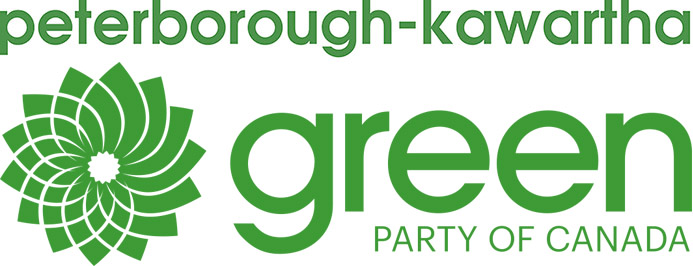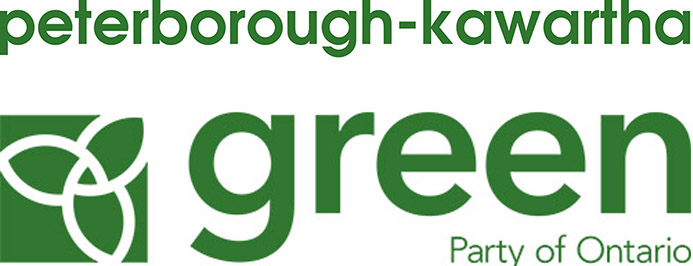On December 16, 2021, we hosted Malaika Collette, a Peterborough Adam Scott graduate, to tell of her experience at COP26 in Glasgow (October 31 to November 12, 2021). Malaika has worked on Green Party campaigns and also has been actively involved with Mock COP26, a global movement of young climate activists. Mock COP26 sponsored her participation in Glasgow. (COP26 is the acronym for the UN Climate Change Conference of the Parties, 26th session. It refers to the Parties to the United Nations Framework Convention on Climate Change which was signed in 1992).
The presentation was followed by a question-and-answer period. Photos and charts accompanied the presentation.
 Malaika described (and showed us pictures of) the various zones at the conference. She was able to get a badge to enter the “Blue Zone” – where all negotiations take place and plenary leaders make their speeches. A Green Zone was designated for the general public.
Malaika described (and showed us pictures of) the various zones at the conference. She was able to get a badge to enter the “Blue Zone” – where all negotiations take place and plenary leaders make their speeches. A Green Zone was designated for the general public.
Malaika mentioned that she is grateful for having had brief conversations with both Elizabeth May and Mike Morrice, who were able to connect her to other people.
She showed us the Action zone where interviews were given and where work groups were organized.
In the two plenary rooms there were high level events that went on all day and every day. An event called the “Civil Society Plenary” provided the organizations like Mock COP26 an opportunity to give addresses.
One of the highlights for Malaika was the Education Ministers’ Summit. Mock COP26, along with the UK and Italian governments and Unesco, had helped to organize this. This was the first time that Education Ministers attended a COP meeting as a formal group.
What was especially heartening was that twenty-three national pledges on climate education came out of this group.
Malaika and others had an opportunity to ask the Ministers questions. Also, a member of MockCOP26 gave an address.
Education Minister’s Summit recording – Malaika’s question is at 1:01:10 roughly
Phoebe’s Keynote speech – extracted from the above summit
There were actions or groups doing demonstrations and rallies inside and outside of buildings for much of the time. This built morale and new friendships. The Climate Justice March drew 30, 000 people to the streets of Glasgow. This event in particular reminded Malaika of the power of the people, especially young people and indigenous youth who were behind this movement. The young people’s goal was basically to be there to hold their leaders accountable.
Some negative outcomes from COP26:
- The wording: phasing down of fossil fuels rather than phasing them out.
- We are not on track for holding the global temperature increase to 1.5 degrees celsius
- No funds were promised for loss or damage due to climate change
- The largest delegation was from fossil fuel lobbyists. They withdrew their address when they realized the large number of potential protesters.
Positive Outcomes:
- Education Ministers’ Summit
- Reference to fossil fuels were in the text for the first time.
- Many countries signed the pledge to work against deforestation.
- The findings of IPCC were welcomed.
Malaika spoke at a Mock COP26 panel in the Green Zone and also participated in a virtual reality exhibit. She attended many events, rallies and connected with people from all over the world.
Questions and Answers about the Presentation:
Q. Did Canada send an education minister?
A. No, probably because in Canada the provinces are responsible for education and we do not have a Federal Education Minister.
Q. Was there any talk about what is driving world leaders to not take action because of the capitalistic need for growth?
A. It comes down to a country’s economy. Some countries have a significant reliance on fossil fuels as consumers.
Q. Can you give us an example of a question, which you asked at the Education Summit?
A. Are countries willing to invest in climate teacher training, and would you allow youth to take a major part in the design of that? One takeaway is that everything comes back to the local level as far as both initiative and results are concerned.
Q. Describe one action that stood out for you.
A. On the last day, hundreds or thousands of people outside in the rain dancing and chanting. Celebrating the fact that we were there.
Also, after the first draft text came out, a group of 30 or 40 reminded them that “we’re watching you”. And signs reading: “Keep it in the text” (reference to fossil fuels)
Q. How did you identify fossil fuel representatives? What did they talk about?
A. Representatives of Shell were easily identifiable…?
Q. Was there anyone there from municipal governments?
A. The mayor of London was the only one I recognized from the list of delegates
Q. What advice do you have for the Green Party? Can we use the Summit outcomes in our messaging?
A. It was hopeful to see a lot of Greens at the conference from around the world. It is good that they reached an agreement but the results could have been stronger. Hopefully it is useful to Greens around the world
Q. What has your post-Cop26 experience been like?
A. A bit of letdown because it was such an immersive experience.
Q. What is next for you?
A. A lot of people are burned out but the movement is growing. There will be more days of action and lobbying. We need to continue to keep energized. Meanwhile, I am working locally with KWIK.
This account was created by Mary and Greg Conchelos, PK Greens volunteers who attended the session.



Recent Comments